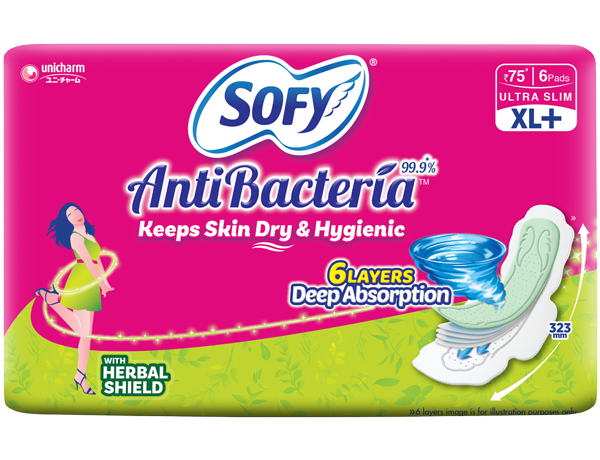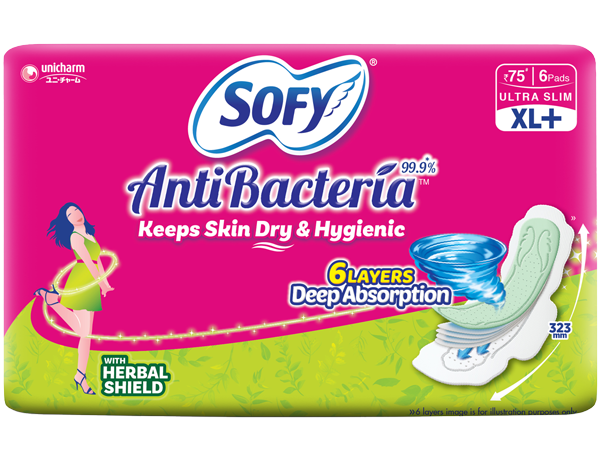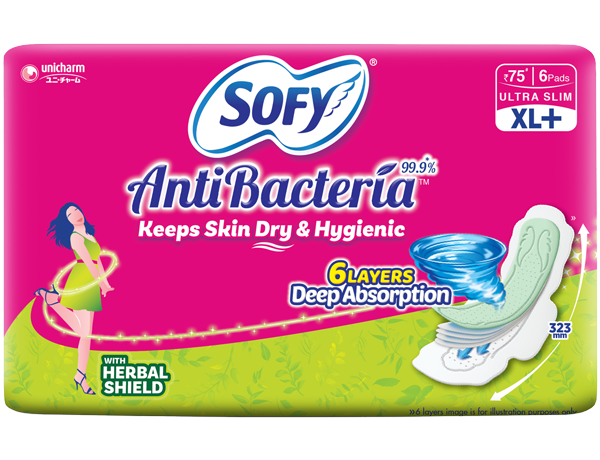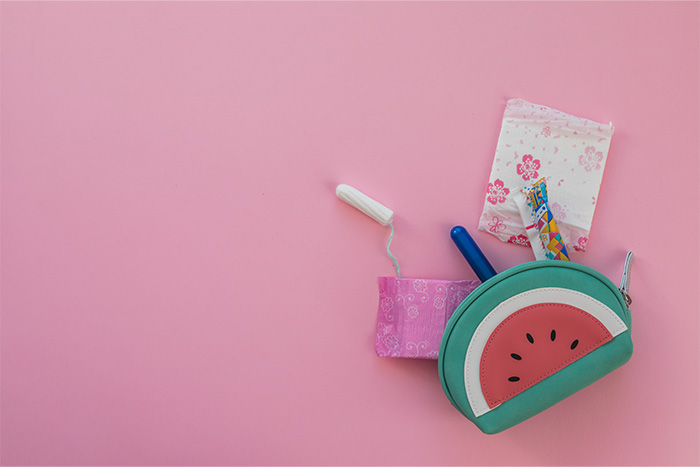A Comprehensive Menstruation Guide for Teenagers: Navigating Your First Period

Strong 8k brings an ultra-HD IPTV experience to your living room and your pocket.
Menstruation is an important part of every woman’s life, and as a teenager, it can feel like a big, unknown milestone. Understanding what happens during your first period and how to navigate menstruation with confidence is key to managing this natural process. This menstruation guide will help teenagers understand their first period and offer advice on how to manage menstruation in a comfortable and healthy way.
When to Expect It: The Individual Timeline
The timing of menarche varies greatly among individuals. Most girls experience their first period between the ages of 9 and 16. This broad range is influenced by a combination of factors including:
Genetics: Often, girls tend to start their periods around the same age their mothers or close female relatives did.
Nutrition and Overall Health: Adequate nutrition and a healthy body weight play a crucial role in hormonal development. Significant underweight or obesity can sometimes influence the timing.
Environmental Factors: While less understood, environmental influences can also subtly affect the onset of puberty.
It's important to remember that there's no "right" age to get your first period. Your body will begin this process when it's ready.
Pre-Period Signals: Listening to Your Body
Before your first period, your body may offer subtle clues that menarche is approaching. These premenstrual symptoms (PMS) can vary in intensity and type for each individual. Common indicators include:
Mood Fluctuations: You might notice shifts in your emotional state, feeling more irritable, sad, or sensitive than usual.
Cramps: Aching or throbbing sensations in your lower abdomen are a common precursor to menstruation. These cramps are caused by the uterine muscles contracting.
Tender Breasts: Your breasts might feel swollen, sore, or more sensitive to touch due to hormonal changes.
Spotting or Discharge: Some girls experience light brown or reddish spotting, or a clear to whitish vaginal discharge, a few days or weeks before their first full period. This discharge is a normal part of your body's self-cleaning process.
The Initial Flow: What to Expect
Your first few periods might not follow a predictable pattern immediately. This irregularity is completely normal as your body adjusts to its new hormonal rhythm.
Duration: Your period can last anywhere from 3 to 7 days. Some might be shorter, others a bit longer initially.
Flow Variation: The flow can range from very light spotting to a moderate flow. It's common for the flow to be light at the beginning and end of your period, with a heavier flow in the middle.
Color: The color of menstrual blood can vary from bright red to dark brown. Both are normal.
Over time, your cycle will likely become more regular, with a more consistent duration and flow.
Preparing for Menarche: Empowering Yourself
Preparation can significantly ease any anxiety surrounding your first period. Knowing what to do and having the necessary supplies on hand can boost your confidence.
Embrace the Natural Process: Your first period is a natural and healthy part of growing up. Try to view it as a normal biological event rather than something to be embarrassed or scared about. Talking to a trusted adult, like a parent, guardian, or school nurse, can also be incredibly helpful.
Assemble a Period Kit: Being prepared means having your essential supplies readily available. Create a small, discreet kit to carry in your backpack or locker. This should include:
Sanitary Pads: These are the most common and easiest-to-use menstrual products for beginners. Choose pads with varying absorbencies (light, regular, heavy) to suit different flow days. Brands like Sofy offer a range of comfortable and reliable options.
Disposable Bags: For discreet disposal of used sanitary products.
A Change of Underwear: Just in case of leaks.
Pain Reliever (Optional): A small amount of over-the-counter pain medication (like ibuprofen or acetaminophen) can be helpful for cramps, always used under parental guidance.
Opt for Comfortable Attire: During your period, comfort is paramount. Loose-fitting, breathable fabrics like cotton can help reduce any discomfort or irritation. Avoid overly tight clothing around your abdomen.
Track Your Cycle: Once your periods begin, tracking your cycle is an excellent way to understand your body's rhythm. You can use a simple calendar, a dedicated period tracking app on your phone, or a journal. Note down the start and end dates of your period, the intensity of your flow, and any accompanying symptoms like cramps or mood changes. This information will help you anticipate your next period and be better prepared.
Alleviating Menstrual Cramps: Finding Relief
Menstrual cramps are a very common symptom, experienced by a significant majority of teenagers. These can range from a dull ache to sharp, intense pain. They are caused by the uterus contracting to shed its lining.
Gentle Movement: While resting might seem appealing, light physical activity can often help alleviate cramps. Activities like walking, gentle stretching, or yoga can improve blood flow and relax tense muscles.
Soothing Heat Therapy: Applying a heating pad, hot water bottle, or even a warm bath to your lower abdomen can provide significant relief. Heat helps to relax the uterine muscles, reducing cramping.
Stay Hydrated: Drinking plenty of water throughout the day is crucial, especially during your period. Dehydration can sometimes worsen cramps. Herbal teas, such as ginger or chamomile, are also known for their anti-inflammatory properties and can help soothe discomfort.
Over-the-Counter Pain Relief: For more severe cramps, over-the-counter pain relievers like ibuprofen (e.g., Advil, Motrin) or acetaminophen (e.g., Tylenol) can be effective. Always consult with a parent or healthcare provider before taking any medication.
Dietary Adjustments: Some dietary changes can help. Reducing intake of salty foods can minimize bloating, while incorporating magnesium-rich foods like leafy green vegetables, nuts, and dark chocolate can help relax muscles and ease cramps.
Maintaining Comfort and Hygiene During Your Period
Prioritizing comfort and good hygiene practices during your period is essential for overall well-being.
Choosing the Right Menstrual Product: The market offers a variety of menstrual products, and finding what works best for you is key.
Sanitary Pads: Ideal for beginners due to their ease of use. They adhere to your underwear and absorb menstrual fluid. Sofy Pads, for instance, come in various sizes and absorbencies, offering both comfort and reliable protection for different flow levels.
Tampons: Inserted internally, tampons offer more freedom for activities like swimming. They come with applicators for easier insertion. It's important to start with the lowest absorbency and follow the instructions carefully.
Menstrual Cups: Reusable, bell-shaped devices inserted into the vagina to collect menstrual fluid. They can be worn for longer periods and are environmentally friendly, but may have a steeper learning curve for beginners.
Regular Product Changes: To prevent odor, discomfort, and reduce the risk of bacterial growth, it's crucial to change your sanitary pad every 4-6 hours, or more frequently on heavier flow days. If using tampons, change them every 4-8 hours to prevent Toxic Shock Syndrome (TSS), a rare but serious bacterial infection.
Prioritize Personal Hygiene: Always wash your hands thoroughly with soap and water before and after changing any menstrual product. Gentle external washing of the vaginal area with water during your shower is sufficient. Avoid harsh soaps or douches, as they can disrupt the natural pH balance and lead to irritation or infections.
Balanced Diet and Regular Exercise: Continuing to eat a nutritious diet rich in fruits, vegetables, and whole grains can help maintain energy levels and reduce premenstrual symptoms. Regular, moderate exercise also contributes to overall well-being and can help manage cramps.
Adequate Rest: Listen to your body's signals. Menstruation can sometimes cause fatigue. Ensuring you get sufficient sleep is vital for managing energy levels and overall mood during your period.
When to Seek Medical Advice
While menstruation is a natural process, certain symptoms warrant a visit to a healthcare provider. It's always better to consult a doctor if you experience:
Extremely Heavy or Prolonged Bleeding: If your period is consistently soaking through pads or tampons every hour for several hours, or if it lasts longer than 7 days, it's advisable to see a doctor.
Severe, Debilitating Pain: If your cramps are so severe that they prevent you from going to school or engaging in daily activities, and don't respond to over-the-counter pain relievers, consult a doctor.
Persistent Irregularity: While initial irregularity is normal, if your periods remain highly unpredictable for several months after menarche, or if you skip periods entirely for extended durations, seek medical advice.
Unusual Discharge: Any discharge that has a foul odor, unusual color, or is accompanied by itching or burning, could indicate an infection and should be checked by a doctor.
Other Concerning Symptoms: Dizziness, lightheadedness, or extreme fatigue during your period should also prompt a medical consultation.
Concluding Thoughts: Embracing Your Menstrual Journey
Your first period marks the beginning of a remarkable and natural part of your life. As you progress through your menstrual cycles, you will gain a deeper understanding of your body's unique rhythms and learn what methods of comfort and care work best for you. Remember that every body is different, and what suits one person may not be ideal for another. Don't hesitate to explore various products and strategies to find what makes you feel most comfortable and confident.
Note: IndiBlogHub features both user-submitted and editorial content. We do not verify third-party contributions. Read our Disclaimer and Privacy Policyfor details.







